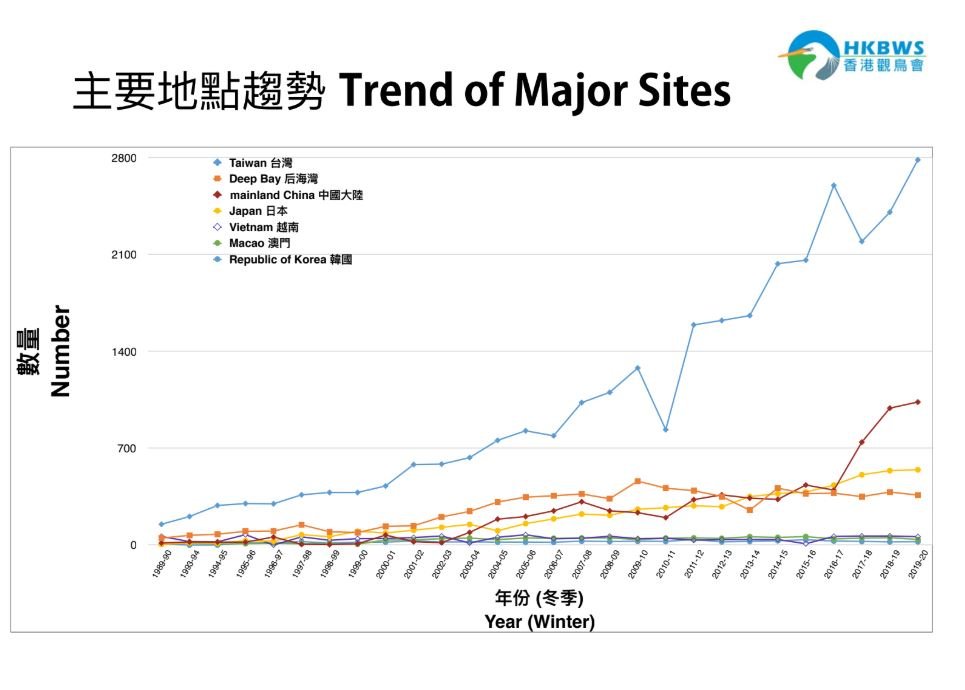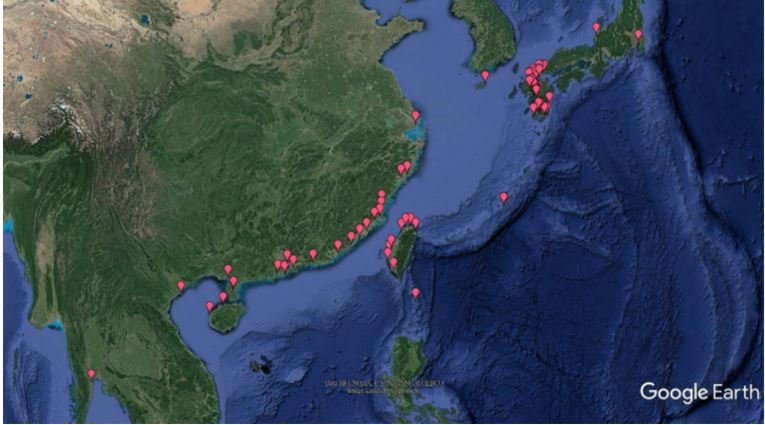The Hong Kong Bird Watching Society (HKBWS) coordinated The International Black-faced Spoonbill Census 2020 from 17th to 19th January. During the 2020 Census, 4,864 Black-faced Spoonbills (BFSs) were recorded, which is an 9% increase (i.e., 401 individuals) compared to that of last year. This is a new record high and the fourth time to hit a new high in the past five years. However, a decreasing trend of BFSs was noted at Deep Bay (including Hong Kong and Shenzhen side). The BFS population at Deep Bay dropped at an annual rate of 1.4% in the past decade. Compared with the record of 462 individuals in 2010, the record this year was only 361 individuals, which was 22% less. The decrease indicates that the quality of wetland habitats in Deep Bay is deteriorating and there is less food supply for BFSs. Conservation of Deep Bay habitats is, no doubt, in urgent need.

©Evans Leung
Population hits record high Steady rise in population
The International Black-faced Spoonbill Census has been carried out since 1994, covering more than 120 sites all over the world. It shows that the population of BFSs has been growing steadily over the past 20 years. Mr. Yu Yat-tung, the Research Manager of HKBWS, said: “This is good news that the population hits record high, especially this is the fourth time in the past five years. There is a steady growth in population of BFS, not only in a few places but in most major wintering sites of BFS including Japan, Taiwan, and mainland China. However, we have to keep it up because the habitats of the BFSs are still under threats.” Compared with the 2019 Census, Taiwan and mainland China recorded significant increases of 15.7% and 4.4%, respectively. More than half of the BFS population wintered in Taiwan, and their number reached a new high of 2,785, accounting for 57.4% of the total. However, numbers of BFSs recorded at Deep Bay (including Hong Kong and Shenzhen side), Macau and the Red River Delta in Vietnam show a significant drop compared with last year. Among these, the number of BFSs recorded in Deep Bay decreased by 5.7%.
Number in HK continues to decline Protection of Deep Bay in urgent need
Analyzing data from the past 10 years, Mr. Yu added: “The environmental deterioration of Deep Bay is worrying. The data shows that the global population of BFS is growing steadily, but the number of BFSs in Deep Bay is 22% less than a decade ago. The wetland habitat is deteriorating and the food available for BFSs is declining, which prompts them not to stay and winter in HK.” The number of BFSs in Macau also recorded a decline. If the urban development of the Bay Area continues and the coastal environment changes from mudflat to cities, the habitat available for BFSs will be further reduced and BFSs may eventually disappear from Deep Bay and Macau. Therefore, there is an acute and urgent need to take more concerted efforts to conserve existing mudflats and fishponds in Deep Bay.
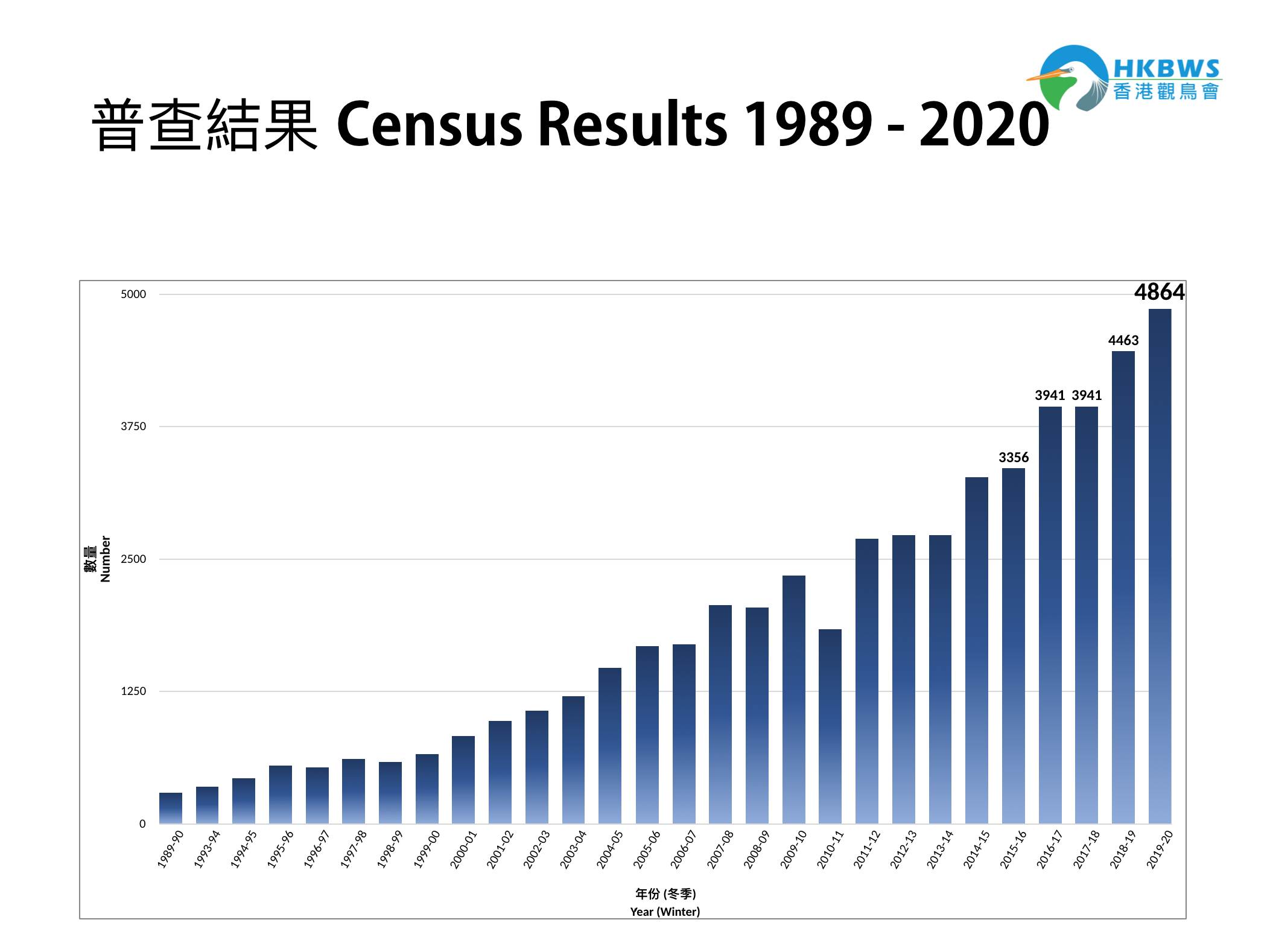
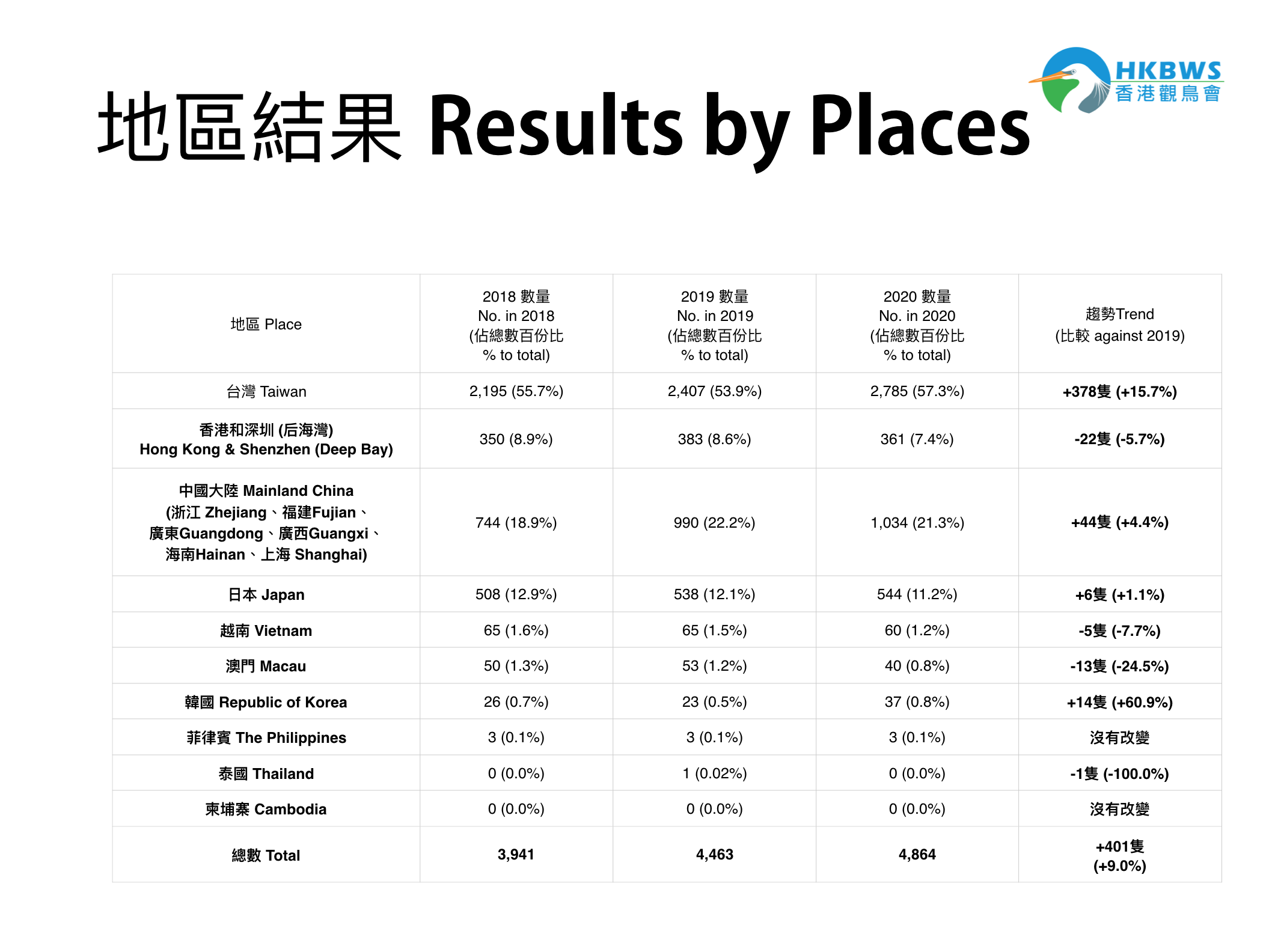
Census sites
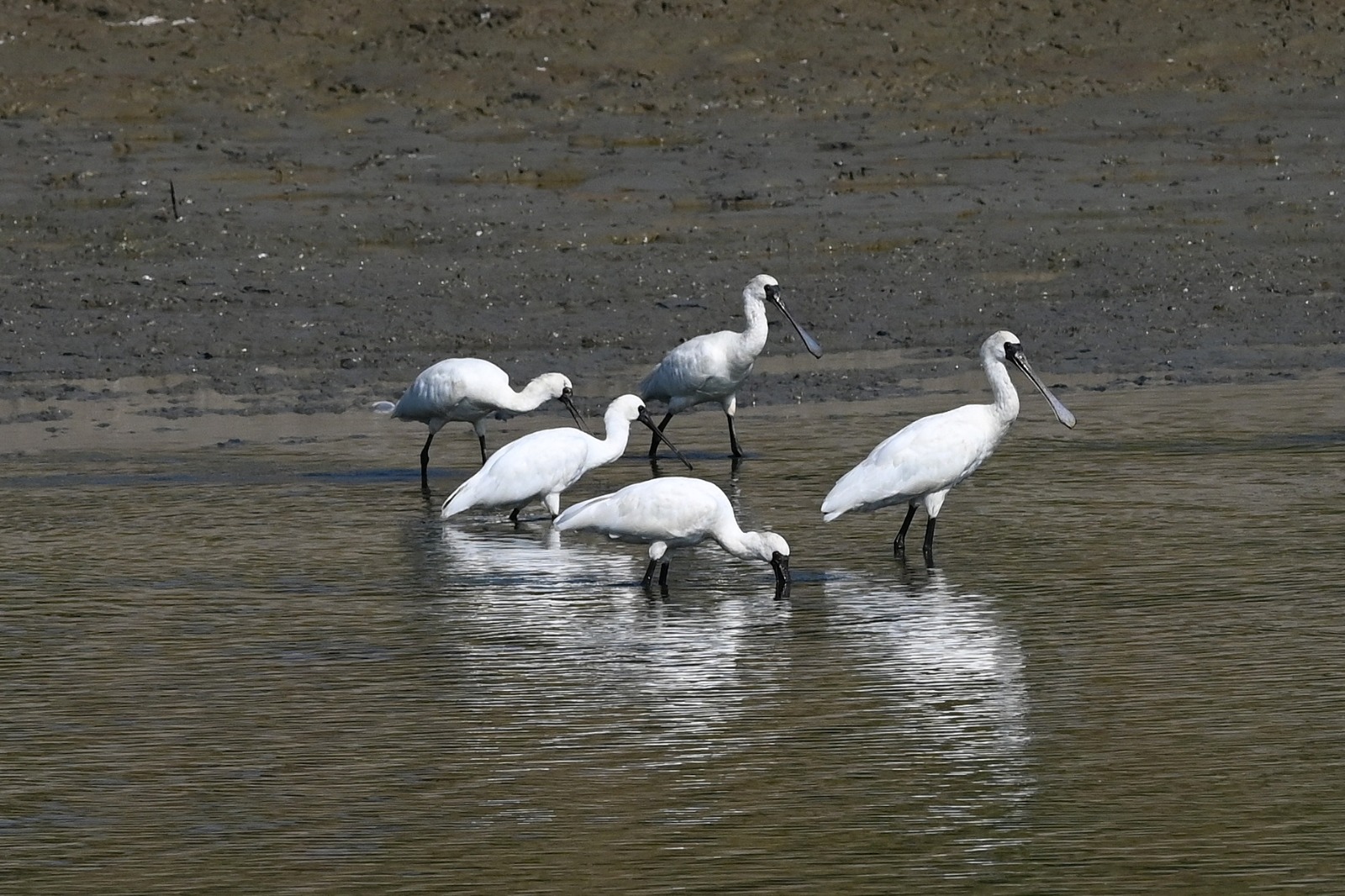
© WK Cheng
Maintaining fishpond operation to protect the endangered Black-faced Spoonbills
In order to tackle further environmental deterioration of Deep Bay, one of the feasible long-term conservation strategies is to increase the carrying capacity of existing fishponds. Fishponds are one of the preferred habitats for BFSs. Mainland China recorded significant increases of BFSs and most of them are found in fishponds in Fujian, Zhejiang and Guangdong. In Taiwan, the main wintering site of BFSs, most of them inhabited at fishponds in Tainan. It shows that maintaining fishpond operations can help conserve the endangered BFSs. In order to increase the carrying capacity of Deep Bay for BFS, it is essential to have long-term preservation and enhancement measures for fishponds in Deep Bay. In addition to the Hong Kong Fishpond Conservation Scheme operating since 2012, HKBWS has recommended a proactive conservation policy to maintain both the traditional fish farming operations and the integrity of fishpond habitat. In particular, the government should take extra caution with every development submission in Deep Bay and the potential implications on BFS conservation. Mr. Yu recommends that the public can help with the long-term BFS conservation by supporting local fishponds and buying local freshwater fishes!”
Details could be found in report below:


